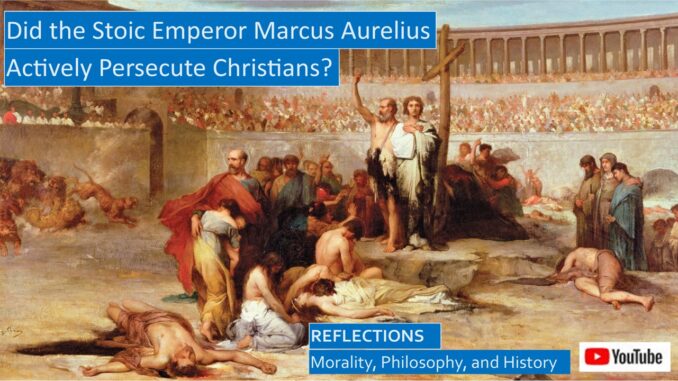
Today we will reflect on this question: Did the good Roman Emperor and Stoic Philosopher Marcus Aurelius actively persecute Christians?
Why wasn’t Marcus Aurelius and other stoics impressed by the martyrdom of Christians in the arena?
How could Marcus Aurelius espouse Christian values in his Stoic Meditations, while also including critical comments criticizing Christianity?
Was Emperor Marcus Aurelius too committed to paganism to consider Christianity? How much authority did he derive from his position as the chief pagan priest of the Roman Empire?
At the end, did Marcus Aurelius reconcile himself with the Christian faith?
NOTE FOR BLOG: Where there are no footnotes, refer to the blogs referenced for the original footnotes.
YouTube Script with more Book Links:
https://www.slideshare.net/BruceStrom1/did-the-stoic-roman-emperor-marcus-aurelius-actively-persecute-the-christians
YouTube video for this blog: https://youtu.be/7xEeggL9wKs
DID MARCUS AURELIUS ACTIVELY PERSECUTE CHRISTIANS?
One of our most popular videos reflected on whether Roman Emperor Marcus Aurelius persecuted the Christians. On the one hand, we know that there were vigorous local persecutions of Christians during his reign and that St Justin, a Church Father and philosopher, was martyred in Rome during his reign. On the other hand, we have no direct evidence that he personally ordered any persecutions of Christians.
We will repeat some, but not all, of our reflections from prior videos.
Marcus Aurelius and Christian Persecutions: Friend or Foe?
http://www.seekingvirtueandwisdom.com/marcus-aurelius-blog-1-friend-or-foe-or-both-of-christianity/
https://youtu.be/-uQxq1O9xSY
Marcus Aurelius was truly a philosopher-king that Plato longed for, he wrote the famous stoic tract, the Meditations. Many of his writings in his Mediations remind us of New Testament teachings, in particular: “Love of one’s neighbor and truth and modesty are a property of the rational soul.”
Unfortunately, another passage in his Meditations seems to confirm that Marcus Aurelius did witness Christians being martyred in the arena.
His Meditations declare: “What a great soul is that which is ready to be separated from the body and then to be extinguished or dispersed or continue to exist. But this readiness must come from a man’s own judgment, not from mere obstinacy, as with the Christians, but considerately and with dignity and in a way to persuade another, without tragic show.”[1]
Probably this was a criticism of the more fanatical Christians who actively sought martyrdom by pestering and loudly objecting to local magistrates that they would not sacrifice to the gods, behavior which was also discouraged by many bishops. Oddly enough, immediately after is when he urges us, at some length, how we should love our neighbor, even when our neighbor wants to be our enemy.
The modern historian, Henry Chadwick, notes that “Marcus Aurelius regarded suicide as ethically unobjectionable, but felt that it must be done in good style, ‘not, like the Christians, in a spirit of theatricality,’” rephrasing the above quote from the Meditations.[2] I demur. This quote does not explicitly mention suicide, though it does repeat the Stoic and Greek concern that one should both live a good life and die a good death.
There is at least one scholar who argues the opposite, that the reference to Christians is a later addition, but few scholars agree with that position.[3]
Walter Kaufman, in his Introduction of the Mediations, put it this way, “a man who, for reasons of state, possibly sanctioned the persecutions of Christians, achieved a genuinely Christian depth of humility. In the words of Matthew Arnold, ‘What an affinity for Christianity had this persecutor of Christians! The effusion of Christianity, its relieving tears, its happy self-sacrifice, were the very element, one feels, for which his soul longed; they were near him, they brushed him, he touched them, he passed them by.’”[4]
The Meditation also criticizes the Christian doctrine of the resurrection of the soul: “If souls continue to exist, how does the air contain them from eternity?” He then speculates that souls eventually diffuse to make room for other souls.
His Meditations also criticizes the Christian doctrine of the resurrection of the body: “We must not only think of the bodies that are buried, but also the animals that are eaten by us and the other animals. For these animals that are consumed are also buried in the bodies of those men who feed on them!”[5] Interestingly, when St. Paul preaches to the Athenians in Acts 17, it is the doctrine of the resurrection of the dead that the Greeks have trouble accepting.
HISTORY OF CHRISTIAN PERSECUTIONS AND PREVIOUS EMPERORS
There was limited persecution of Christians in New Testament times at the insistence of certain Jewish leaders, but Emperor Nero was the first emperor to persecute the Christians in Rome. A large portion of Rome was destroyed in a large fire, and since many blamed him for clearing space for a new palace, Nero instead made Christians the scapegoats, martyring them both in the arena and as living torches in his gardens during his parties. Nero also murdered many senators, eventually he lost all support, was abandoned by the Pretorian Guard, and was compelled to commit suicide.
Vespasian, the fourth emperor in the year after Nero expired, did not actively persecute Christians, and neither did his older son and successor, Titus. But his younger son, Domitian, who succeeded Titus as emperor, insisted that Jews and Christians view him as ‘Master and God,’ which resulted in empire-wide spotty persecutions.
Domitian was assassinated, and there were few persecutions, if any, under his successor and the first of the five good Roman Emperors, Nerva, who reigned only eighteen months. His successor, Trajan, eased up on the persecutions, as he did not like his cult becoming a compulsory test of loyalty.
The Roman Empire reached its greatest extent under the conquests of Trajan. His successor Hadrian thought these far-flung borders were indefensible, so he withdrew from Armenia and several other provinces and concentrated on consolidating the empire, visiting each province, binding the empire closer together. His successor, Antoninus Pius, was an old man when he became emperor, he ruled from Rome, he was a former Senator, he was neither a general nor a traveler.
However, persecutions did not cease under Trajan, during this time St Ignatius of Antioch was famously martyred in Rome, writing epistles to and visiting with members of several churches on his journey, most of which survive to this day. Under Trajan the policy was set that if someone were accused of being a Christian, they would be freed if they burned incense to the gods and the emperor’s statue, and denounced Christ. But Christians were not to be actively sought out, and informers could not be anonymous. The degree of persecution, and the strictness of the proceedings, differed among the provinces, many local governors were not eager to persecute the local Christians. The plight of Christians improved under the next good emperors, Hadrian and Antoninus Pius.
Epistles of St Ignatius to the Romans and Polycarp
http://www.seekingvirtueandwisdom.com/epistles-of-st-ignatius-to-the-romans-and-polycarp/
St Ignatius Epistles to the Ephesians, Magnesians, and Smyrnaeans
http://www.seekingvirtueandwisdom.com/st-ignatius-epistles-to-the-ephesians-magnesians-and-smyrnaeans/
Epistles of St Ignatius of Antioch, Early Church Martyr
https://youtu.be/CM31T6J4bXo
We reflected on the history of Christian persecutions, using the ancient church historian Eusebius and his Ecclesiastical History as a main source to determine the extent of Christian persecution through the reign of Marcus Aurelius. We also reflected on the history of the Roman Emperors preceding Marcus Aurelius.
History of Christian Persecutions, New Testament Through Marcus Aurelius
https://seekingvirtueandwisdom.com/history-of-christian-persecutions-new-testament-through-marcus-aurelius/
https://youtu.be/9THdbyx-jHU
Roman Emperors Before Marcus Aurelius
https://seekingvirtueandwisdom.com/roman-emperors-before-marcus-aurelius/
https://youtu.be/6i–hVIpg1k
CHRISTIAN AND PAGAN APOLOGISTS
Since the Christian persecutions were not systematic, many Christian intellectuals wrote apologies defending Christianity, seeking both to encourage future Christian martyrs, and to convert the emperors so they would halt the persecutions, or so they hoped. The two main apologists were St Justin the Martyr and Tertullian, they had opposite attitudes to pagan philosophy. Justin saw Christianity as the summation of man’s search for truth, he was widely read in philosophy and said that Platonism helped lead him to Christianity. Justin interpreted the Old Testament primarily in a Christocentric manner. One of his students was Tatian.[6]
St Justin Martyr, Blog 1, First Apology to the Emperor
http://www.seekingvirtueandwisdom.com/st-justin-martyr-blog-1-first-apology-to-the-emperor-2/
https://youtu.be/s1Gz3pwImO8
St Justin Martyr’s Second Apology to Senate, Quoting Xenophon’s Socrates, Ladies Virtue and Vice
http://www.seekingvirtueandwisdom.com/justin-martyr-second-apology-and-socrates/
https://youtu.be/-E3r8Z4IE1c
St Justin Martyr, Dialogue with Trypho, Blog 3, Justin Is Converted
http://www.seekingvirtueandwisdom.com/st-justin-martyr-dialogue-with-trypho-blog-3-justin-is-converted/
http://www.seekingvirtueandwisdom.com/st-justin-martyr-dialogue-with-trypho-the-jew-on-circumcision-and-jesus/
St Justin Martyr’s Dialogue With Trypho, a Jew, on Circumcision, Jesus, and Philosophy
https://youtu.be/AafwB0tA5a8
On the other hand, Tertullian was hostile to pagan learning, he famously asked, “What does Athens have to do with Jerusalem?” He was one of the first Church Fathers to write in Latin rather than Greek and was famous for many other aphorisms. When explaining why God would reveal himself in a crucified and resurrected Christ, he proclaimed: “I believe it precisely because it is absurd.”[7] We are planning to reflect on the works of Tertullian in the future.
The anti-Christian apologists in descending order of hostility were Celsus, Porphyry, and Galen. Celsus wrote the diatribe “The True Word” before 180, likely Marcus Aurelius was familiar with this work. Many years later the Christian theologian Origen would pen the lengthy Contra-Celsus, where he responds to his learned criticisms of Christianity point by point.
Celsus was more familiar with actual Christian doctrine than preceding critics. The modern biographer McLynn notes how Celsus contrasts Christianity and Judaism, criticizing Christianity: “The Christians claim that they are the proper realization of Judaism while rejecting core Jewish customs and laws on circumcision, diet, festivals, and keeping the Sabbath. They cannot have it both ways: either they are a new sect with no relations to Judaism, or they are a cousin of the Jewish faith, in which they are not entitled to take a pick-and-mix approach to its doctrines.”
McLynn continues with his summary of Celsus’ views: “Judaism was a nationalistic sect, with no claims to universality, but Christianity claimed to be a world religion; it was thus both implicitly and explicitly a threat to the Roman empire and to social stability in general: implicitly because of its dogmas, and explicitly because it proselytized. Judaism was compatible with paganism since both practiced sacrifice; Christianity emphatically was not.”[8]
Although he mostly combatted heresy in his writings, since there were no major persecutions that he faced, we must credit St Irenaeus, along with St Justin the Martyr, for coining many of the terms that Christians use to describe their faith, whether they be Protestant, Catholic, or Orthodox.
St Irenaeus On Heresies, Eusebius and Modern Scholars, and Catholic Catechism
http://www.seekingvirtueandwisdom.com/st-irenaeus-on-heresies-eusebius-and-modern-scholars-and-catholic-catechism/
St Irenaeus Blog 1 Against Heresies, Introduction
http://www.seekingvirtueandwisdom.com/st-irenaeus-blog-1-against-heresies-introduction/
St Irenaeus Blog 2 Against Heresies
http://www.seekingvirtueandwisdom.com/st-irenaeus-blog-2-against-heresies/
St Irenaeus: On Heresies, Early Church Father, Future Doctor of the Church
https://youtu.be/bG1okLOum2E
St Irenaeus Blog 3 Allegorical Interpretations of Scripture
http://www.seekingvirtueandwisdom.com/st-irenaeus-blog-3-allegorical-interpretations-of-scripture/
St Irenaeus, Allegorical Interpretations of Scripture, From Against Heresies
https://youtu.be/L5KLUjK7SCQ
BIOGRAPHY OF MARCUS AURELIUS
The five good Roman Emperors, Nerva, Trajan, Hadrian, Antonius Pius, and finally Marcus Aurelius, were good because they did not inherit the throne. Nerva was elected by the Senate after the execution of Domitian, General Hadrian succeeded Trajan when he died during a military campaign, and the other three were adopted by their predecessor as being amply qualified to be emperor.
Marcus Aurelius praised Antoninus Pius for his many stoic virtues in his Meditations. Hadrian adopted Antoninus Pius and insisted that he, in turn, adopt Marcus Aurelius, ensuring secure successions for both of them. Hadrian hired many stoic and scholarly tutors for young Marcus, who strove to live an ascetic stoic life even as a boy of twelve. Marcus was elected consul and assumed many responsibilities as Antoninus Pius’ health declined in his final years.
Marcus Aurelius faced more challenges as emperor than any of the other good Roman Emperors preceding him. These challenges included:
- Major flooding of the Tiber River in Rome.
- Invasion of Armenia and the Eastern Provinces by Parthia in Persia.
- The Antonine Plague killed ten percent of the population.
- Rebellion of the Germanic tribesmen who invaded North Italy.
No sooner had Marcus Aurelius overcome these problems than his favorite general in the East, Avidius Cassius revolted, encouraged by the Empress and wife of Marcus Aurelius, Faustina. Initially, they were responding to rumors that Marcus had died, but the rebellion continued after the rumors proved false. Both died under mysterious circumstances.
In explaining why Marcus Aurelius was loath to ruthlessly punish those who allied themselves with his general Avidius Cassius when he raised a revolt, the ancient Roman Historian Cassius Dio says this: “Marcus, indeed, was so averse to bloodshed that he even used to watch the gladiators in Rome contend, like athletes, without risking their lives; for he never gave any of them a sharp weapon, but they all fought with blunted weapons like foils furnished with buttons.”[9]
Marcus Aurelius was a practicing stoic during his reign as emperor when many crises confronted him. He ate simply and did not display his wealth ostentatiously, and he did not host debauched and elaborate banquets. Although he did not shy away from the necessary cruelties compelled by the bitter Marcomannic Wars against the Germanic tribesmen, he was ready to forgive shortcomings during these wars when reigning as emperor, and even after the half-hearted coup attempt against him. After the coup, he proclaimed there would be no death penalties facing those who had become entangled in this coup attempt.
The efforts of Marcus Aurelius were wasted when his son Commodus succeeded him as emperor. He was as cruel and despicable an emperor as Nero, and like Nero, he was assassinated by a conspiracy of Pretorian Guards and Senators, and like Nero, his rule was followed by another year of five emperors before the Roman Empire stabilized somewhat. Unlike Nero, Commodus tolerated Christians, he did not actively persecute them.
Biography of Marcus Aurelius, Stoic Philosopher and Roman Emperor
https://seekingvirtueandwisdom.com/biography-of-marcus-aurelius-roman-emperor-and-stoic-philosopher/
https://youtu.be/nvWYu8ofhCA
MARCUS AURELIUS, CHRISTIANITY, AND PAGANISM
Why did the Christian persecutions increase under the reign of Marcus Aurelius? Local persecutions were likely aggravated by the stresses facing the empire: the floods, the plagues, and the rebellions in Parthia and Germania. In pagan societies, you bribed the gods with sacrifices and occasional public prayers so they would not do you any harm, and to protect the community from disasters. Many pagans felt that if even just a few in the community did not do their civic duties and offer sacrifices, the gods would be angry and withhold their favor. Many blamed these troubles the empire was facing on the Christians.
Previously I speculated that one reason why there were persecutions in Rome during the reign of Marcus Aurelius was that he was distracted fighting the Germanic tribes. Unfortunately, we learned that in the last years of Pius’ reign and the early years of his reign, Marcus ruled in Rome for several decades.
The famous persecution of Bishop Polycarp happened in Asia Minor under the reign of Marcus Aurelius, as did a local persecution in North Africa, and other places. But an especially vicious, systematic, and persevering persecution erupted in Lyons, now France, then Gaul, when a bloodthirsty governor martyred nearly every Christian in two dioceses. This was possibly the only systematic persecution in the entire history of the Roman Empire.
Henry Chadwick in his influential history of the Early Church says with certainty that Marcus Aurelius ordered the persecution of Christians in Gaul, today’s France, writing that “the emperor Marcus Aurelius directed that the Christians should be tortured to death, and no refinement of cruelty was spared.”[10] But other scholars doubt that Marcus Aurelius ordered these local persecutions, although it is likely he eventually was made aware of this persecution.
St Justin Martyr had written an apology addressed to the Senate, and another apology was addressed to Pius and Marcus. In Rome, St Justin founded a school for philosophers. He challenged the Cynic pagan philosopher Crescens to a debate. Justin won the debate, but Crescens turned him in for martyrdom. The judge was a former tutor and friend of Marcus, so Marcus must have been aware of this persecution.
History of Christian Persecutions, New Testament Through Marcus Aurelius
https://seekingvirtueandwisdom.com/history-of-christian-persecutions-new-testament-through-marcus-aurelius/
https://youtu.be/9THdbyx-jHU
What were Marcus Aurelius’ policies towards Christians? McLynn has these observations, which were in response to the challenges faced by the empire: the plague, the flooding of the Tiber, and two unwanted military conflicts.
- Early in his reign, he issued a decree mandating the worship of the Olympian gods, which was not likely directed at the minuscule Christian sect.
- Another decree ordered exile to an island for anyone who tried to invoke terror of the gods, which Tertullian mentions.
- There is less conclusive evidence that he encouraged provincial governors to vigorously enforce the law against treasonable sects.[11]
How committed was Marcus Aurelius to the worship of the gods? How much contact did he have with Christians?
Marcus Aurelius served as the chief priest from an early age, this was part of his civic duty and solidified his position as emperor. If he had abandoned this priesthood, he would have lost his authority as emperor. While in Greece, Marcus and his son Commodus were initiated into the Eleusinian mysteries, the esoteric ritual that possibly included a trance induced by psychedelic drugs, including sacred objects like a mystical serpent and a holy phallus. Supposedly only the pure in heart would be accepted, which would further bind him to paganism.
Pagan priests are not the same as Christian priests, as this was more of a civic rather than religious duty. Pagans typically did not pray to pagan gods out of love for the gods, as the gods were distant from ordinary people. You might pray that the pagan gods will bless you or your crops, or you might pray to the Greek demi-god Asclepius for healing, but mostly you sacrificed to the gods so they will not do you harm. Or you might visit an oracle to ask for guidance from the gods.
Did Marcus Aurelius really believe the pagan gods existed? Many educated Romans and most Roman emperors were skeptics, but history suggests that Marcus was not skeptical. He mentions various gods more often than the other Stoic philosophers, although most of his references are to either God or to Zeus like most stoics, and his coins often depict the various gods, unlike the coins of Antoninus that depict historical Roman notables. We also know he was fond of sacrifices and oracles.[12] His personal physician was the famous Galen, who claimed to have a hotline to the healing god Asclepius.[13]
None of his relatives or colleagues favored Christianity, unlike the future first Christian Emperor Constantine, whose mother was Christian. We do know that several of his colleagues and government officials did not condone Christianity. Even in his reign, the percentage of the population that was Christian was still small. About two percent of Roman citizens were Christian in 250 AD,[14] so the percentage during the reign of Marcus Aurelius was likely around one percent or less.
During his campaigns in Germania, Marcus Aurelius wrote his Meditations, establishing him as one of the great Stoic Philosophers. Many of his Meditations agree with Christian teachings, making many Christians in both the modern and ancient world reluctant to accuse him of persecuting Christians. He encouraged the study of philosophy, he funded four chairs of philosophy in Athens, for Stoics, Epicureans, Platonists, and Aristotelians.[15]
Marcus Aurelius Blog 2, Others will be irritating, but not I!
http://www.seekingvirtueandwisdom.com/marcus-aurelius-blog-2-others-will-be-irritating-but-not-i/
Marcus Aurelius Blog 3 Genuine Friends Don’t Keep Scorecards
http://www.seekingvirtueandwisdom.com/marcus-aurelius-blog-3-genuine-friendships-have-no-scorecards/
Marcus Aurelius Blog 4 Be critical of yourself, be gracious towards your neighbor
http://www.seekingvirtueandwisdom.com/marcus-aurelius-blog-4-be-critical-of-yourself-be-gracious-towards-your-neighbor/
Marcus Aurelius Blog 5 Seeing life’s misfortunes through the eyes of our neighbor
http://www.seekingvirtueandwisdom.com/marcus-aurelius-blog-5-seeing-lifes-misfortunes-through-the-eyes-of-our-neighbor/
Marcus Aurelius: Meditations: Stoic View of Life
https://youtu.be/0qHpReZYhv4
POSSIBLE RAIN MIRACLE WHEN FIGHTING THE GERMANIC TRIBES
The column in Rome celebrating Marcus Aurelius’ victory against the Germanic tribesman depicts the Rain Miracle during the Marcomannic Wars, which is attributed to the pagan gods in the carvings on the column. Was this a pagan miracle, or a Christian miracle?
We will compare several sources, the first source is Cassius Dio, a Roman Senator who wrote an eighty-book history of the Roman Republic and the Roman Empire. Unfortunately, the last twenty books contain only fragments and the meager abridgment of John Xiphilinus, a Byzantine monk from the 11th century.[16] This tends to be more complete for the last years of Marcus Aurelius’ reign.
Cassius Dio states that “the Quadi had surrounded” and outnumbered the Romans. “At a favorable spot” as “the Romans were fighting valiantly with their shields locked together, the barbarians ceased fighting, expecting to capture them easily as the result of the heat and their thirst. So, they posted guards and hemmed them in to prevent them from getting water from anywhere.”
Cassius Dio continues, “The Romans, accordingly, were in a terrible plight from fatigue, wounds, the heat of the sun, and thirst, and so could neither fight nor retreat, but were” “scorched by the heat, when suddenly many clouds gathered and a mighty rain, not without divine interposition, burst upon them. Indeed, there is a story” that “Arnuphis, an Egyptian magician, who was a companion of Marcus, had invoked the rain by means of enchantments various deities and in particular Mercury, the god of the air, and by this means attracted the rain.”
Xiphilinus interjects: “This is what Dio says about the matter, but he is apparently in error, whether intentionally or otherwise; and yet I am inclined to believe his error was chiefly intentional.”
We would like to emphasize that during the Marcomannic Wars, as the result of the manpower shortage caused by the plague, the Roman Empire relaxed their recruiting standards for soldiers, so it was reasonable that they would induct many Christians.
Xiphilinus continues: “Marcus Aurelius’ prefect approached him and told him that those who are called Christians can accomplish anything whatever by their prayers and that in the army there chanced to be a whole division of this sect. Marcus on hearing this appealed to them to pray to their God; and when they had prayed, their God heard and smote the enemy with a violent hailstorm and thunderbolts, while he comforted the Romans with a shower of rain.”
“Water and fire were descending from the sky simultaneously; so that while those on the one side were being consumed by fire and dying; and while the fire, on the one hand, did not touch the Romans, but, if it fell anywhere among them, was immediately extinguished. The shower, on the other hand, did the barbarians no good, but, like so much oil, actually fed the flames that were consuming them, and they had to search for water even while being drenched with rain.”[17]
Personally, I decline to suspect that our good monk Xiphilinus is being duplicitous when he declares that this is what Dio says about the matter, but then, how can you prove such a thing? Maybe Cassius Dio did say this was a Christian miracle. After all, something similar happened in battle under Constantine many generations later.
The modern historian Anthony Birley notes that it would be in character for Marcus to pray to Zeus during a thunderstorm for a thunderbolt to strike the enemy.
What does Eusebius tell us about this Rain Miracle? When Marcus Aurelius was battling the German barbarians, his Christian soldiers prayed to God and a thunderbolt struck that “drove the enemy to flight and destruction,” and the rain that fell revived the Roman army that was “on the point of perishing from thirst.” Eusebius says that Marcus wrote letters stating that in Germany his army was saved from thirst “by the Christians’ prayers, and Marcus threatened to execute any who attempted to accuse us.”
WAS THIS THE CHRISTIAN RAIN MIRACLE EPISTLE SPURIOUS?
Eusebius says that Marcus wrote letters stating that in Germany his army was saved from thirst “by the Christians’ prayers, and Marcus threatened to execute any who attempted to accuse us.”[18] Maybe Eusebius is telling us that Marcus Aurelius came to see the light, or maybe that his sources conflict on whether Marcus Aurelius persecuted the Christians.
This epistle credited to Marcus Aurelius is appended to St Justin the Martyr’s First Apology to the Roman Senate in the First Volume of the Ante-Nicene Church Fathers. This epistle tells us of these Christians, how they “began the battle, not by preparing weapons, nor arms, nor bugles; for such preparation is hateful for them, on account of the God they bear about in their conscience.”
St Justin Martyr, First Apology to the Emperor
http://www.seekingvirtueandwisdom.com/st-justin-martyr-blog-1-first-apology-to-the-emperor-2/
https://youtu.be/s1Gz3pwImO8
This Epistle continues: Immediately when the Christians “cast themselves on the ground to pray to their God, refreshingly cool water poured from heaven, but on their enemies fell a fiery withering hail. And immediately we recognized the presence of God following this prayer, a God unconquerable and indestructible.”
Even the Protestant scholar compiling this work in the late 1800’s footnotes this Epistle as “spurious, no doubt, but the literature of the subject is very rich.” [19] Modern scholars would no doubt agree with this assessment.
Was this Epistle indeed spurious? Historians would point out that there is no Roman evidence for a change of heart by Marcus Aurelius, other than the possible suggestion of Cassius Dio. However, it does tell us is that many early Christians, including Eusebius, wanted to believe that this Epistle from Marcus Aurelius was authentic. But there is enough confusion among the ancient historical accounts that modern Christians, in addition to ancient Christians, can indeed hope that Marcus Aurelias saw the light of salvation in his last days.
Did Marcus Aurelius actively persecute the Christians? Since our good emperor did not enjoy the bloody gladiatorial contests, and took steps to tamp them down, and since history provides little evidence to prove this, it makes sense to say he did not. But his quotes in his Meditations, and other evidence, provide a strong argument that he tolerated the persecution of Christians in Rome and elsewhere.
DISCUSSING THE SOURCES
Anthony McGuckin has written a remarkable history of the first millennium of the Christian faith, and he has a long chapter devoted to the Christian persecutions. McGuckin discusses the mystery cults, such as Mithras and Cybele, and also Manicheism, which we did not discuss.
The modern historian Frank McLynn, in his biography of Marcus Aurelius, has a great deal of background information on the Christian Persecutions, both in the reigns of Marcus Aurelius and previous emperors. Anthony Birley, another modern biographer of Marcus Aurelius, also discusses the persecutions, but in addition has an excellent discussion of the historical sources of the Christian persecutions.
The most important source of all is Marcus Aurelius’ Meditations, and this collection of Stoic aphorisms is very readable, and I highly recommend it.
Another critical ancient source is the History of the Church by Eusebius, also known as Ecclesiastical History. He is the church historian who lived during the reign of Emperor Constantine. There are some historical inaccuracies that are found in most ancient historical accounts, including Eusebius, but they don’t detract from the story. His quotes reveal the mindset of ancient Christian leaders.
We always consult Henry Chadwick on the History of the Early Church; he always has interesting points.
We discuss the sources in more depth in our video on the Biographies of Marcus Aurelius, and also our concluding video on whether Marcus Aurelius Actively Persecuted Christians.
[1] Marcus Aurelius, “Meditations,” translated by George Long, revised and updated (Dover Publications, 1997), Book XI, 85-86.
[2] Henry Chadwick, Augustine of Hippo, A Life (Oxford University Press, 2009, 2010), “The Early Church,” p. 31.
[3] Anthony Birley, Marcus Aurelius, A Biography (New York: BT Batsford, 2000, 1966), pp. 263-264.
[4] Introduction probably written by Walter Kaufman, preceding Marcus Aurelius, “Meditations,” translated by George Long, revised and updated (Dover Publications, 1997), viii – ix.
[5] Marcus Aurelius, “Meditations,” Book IV, 22-23.
[6] Frank McLynn, Marcus Aurelius, A Life (Philadelphia, PA, Da Capo Press, Random House 2009), pp. 280-283 and Anthony McGuckin, The Path of Christianity, the First Thousand Years, Blood in the Arena (Downers Grove, Illinois” IVP Academic, 2017), pp. 185-187.
[7] Anthony McGuckin, The Path of Christianity, the First Thousand Years, Blood in the Arena, pp. 195-197.
[8] Frank McLynn, Marcus Aurelius, A Life, pp. 269-270.
[9] Cassius Dio, Roman History, Book 72, Chapter 29, from https://penelope.uchicago.edu/Thayer/E/Roman/Texts/Cassius_Dio/72*.html .
[10] Henry Chadwick, “The Early Church,” (Dorset Press: New York, 1967), p. 29.
[11] Frank McLynn, Marcus Aurelius, A Life, p. 303.
[12] Frank McLynn, Marcus Aurelius, A Life, pp. 228 and 398.
[13] Frank McLynn, Marcus Aurelius, A Life, p. 345.
[14] https://en.wikipedia.org/wiki/Historiography_of_Christianization_of_the_Roman_Empire
[15] Anthony Birley, Marcus Aurelius, A Biography, p. 195.
[16] https://en.wikipedia.org/wiki/Cassius_Dio
[17] Cassius Dio, Roman History (Loeb Classical Library, 1927, originally 129 AD+), Book 72, Chapters 8-9, from https://penelope.uchicago.edu/Thayer/E/Roman/Texts/Cassius_Dio/72*.html .
[18] Eusebius, The History of the Church, translated by George Long, revised and updated (Dover Publications, 1997), Book 5, Chapter 6, pp. 206-208 and Anthony Birley, Marcus Aurelius, A Biography, pp. 172-173.
[19] St Justin Martyr, “Epistle of Marcus Aurelius to the Senate, appended to “The First Apology of Justin,” in the Ante-Nicene Fathers, Volume 2, (Boston: Hendrickson Publishers, 1994, first published 1885), p. 187.

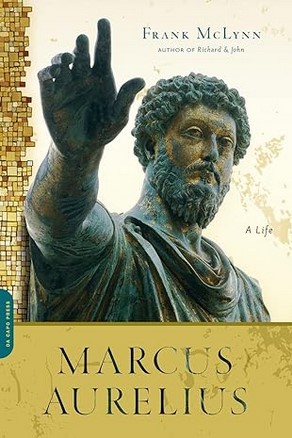
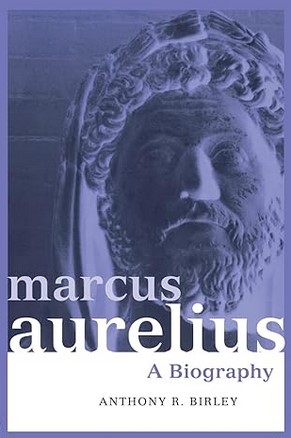
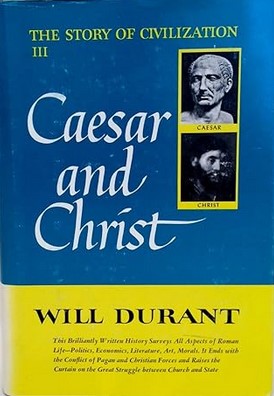
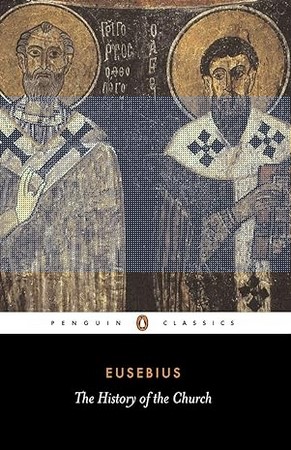
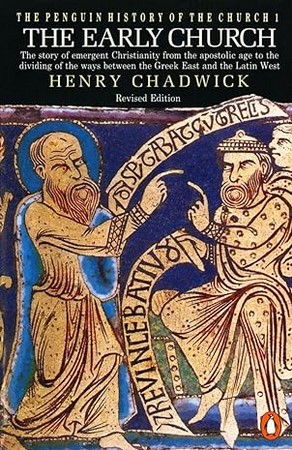
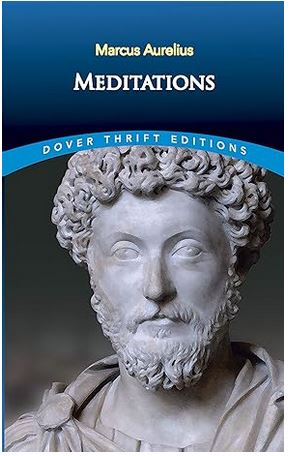
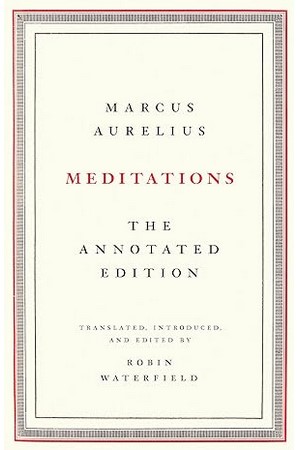

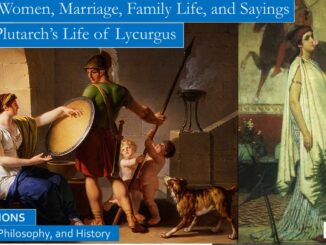

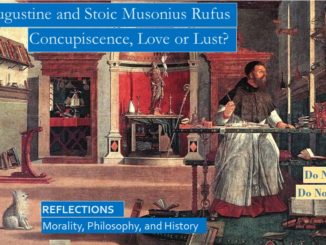
Be the first to comment